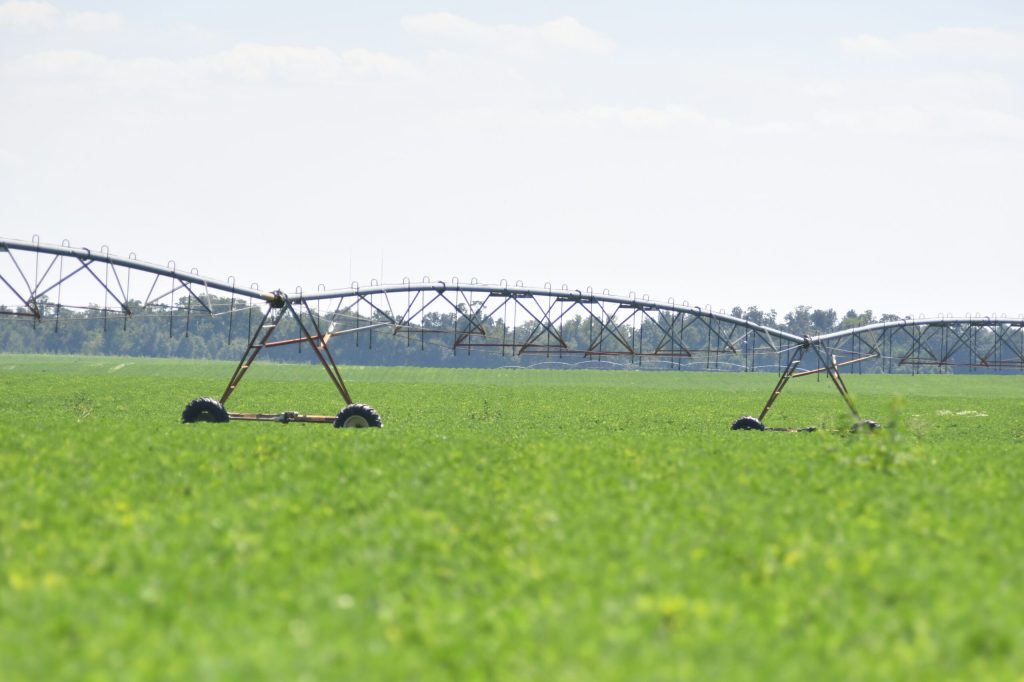Do I need to winterize my center pivot?
Published 11:44 am Friday, January 24, 2025
|
Getting your Trinity Audio player ready...
|
As the temperatures drop during the winter months, preparing your center pivot is essential to prevent possible damage and extend the lifespan of your irrigation system. For farmers and agricultural managers, this is a practical guide to protect your equipment and improve your operation efficiency.
One of the roles of the University of Georgia’s Research and Education Centers is to disseminate practical knowledge to the Ag community to support local farmers and the agriculture industry where they are located. We are grateful to have this space to reach out to our Ag community here in Southwest Georgia. The following guide provides you with valuable information on how to winterize your center pivot. This guide was prepared by Dr. Gary L. Hawkins, from the Department of Crop and Soil Sciences at University of Georgia. The full guide can be found at https://extension.uga.edu/publications.html bulletin number 1439 “Winterizing Your Irrigation System”.
Steps:
Conduct a sprinkler package performance check
Prior to shutting the system down for the year, perform a “catch-can” uniformity test to verify that the system is applying water uniformly (see UGA Extension Circular 911, “Evaluating and Interpreting Application Uniformity of Center Pivot Irrigation Systems”).
Check for leaks, malfunctioning or missing sprinklers, damaged pipes, etc., and repair the problems.
Consider a new sprinkler package that could replace what’s on your system now if it’s not performing well. There are many new, innovative sprinkler designs on the market.
Drain the irrigation system
Remove the plugs to drain pipes, valves, pumps, sprinklers, booster pumps, and anything else on the above ground portion of the irrigation system that can hold water.
Drain the pump casing to remove any water that may still be in the casing.
Secure system components
Close or cover openings (even on motors and pumps) that would allow mice to enter. Lock the control box in the OFF position.
Service required parts
Service gearboxes, drive lines, motors on pivot towers. Service engine used to drive the pump.
Restore the ground around the tracks
Repair any rutted pivot wheel tracks.
Repairing tracks at the end of the season will help reduce erosion during the winter and spring.
Test the metering equipment
Make sure the flow meter on your withdrawal point (usually at your pump) is functioning properly.
A properly functioning meter can be used to determine proper operation of the pumping unit as well as water management tool. To use the flow meter as water management tool you can learn more in the bulletin 1296 “Water Meters as a Water Management Tool On Georgia Farms.
Take away:
After harvest and prior to hard winter temperatures provide an opportunity to check the systems, do some maintenance, and drain the system. It also gives you a chance to ask important questions like:
“Do I want to look at a different irrigation sprinkler package?”
If the answer is YES: prior to shutting the system down, change the package and do some testing as listed above.
“Do I want to look at some new technologies to help with irrigation scheduling?”
If the answer is YES: the next few months will allow you time to learn more about the technology and get it installed prior to the spring/summer crop. Also consider looking at some sensors and software that could work with your technology purchase.
As one season of irrigation finishes, the things listed above can protect your irrigation system as well as ensure that the system is ready to apply water the next growing season. The above list should cover most of the components in an irrigation system, but your system may not have all of these parts or may have more parts. Therefore, check for components not mentioned that you might have on your specific system.
If you are interested in learning more about winterizing or performing a uniformity test for center pivots please do not hesitate to contact us at sirp@uga.edu or arec@uga.edu.
Your neighbors,
C.M. Stripling Irrigation Research Park & Attapulgus Research and Education Center






